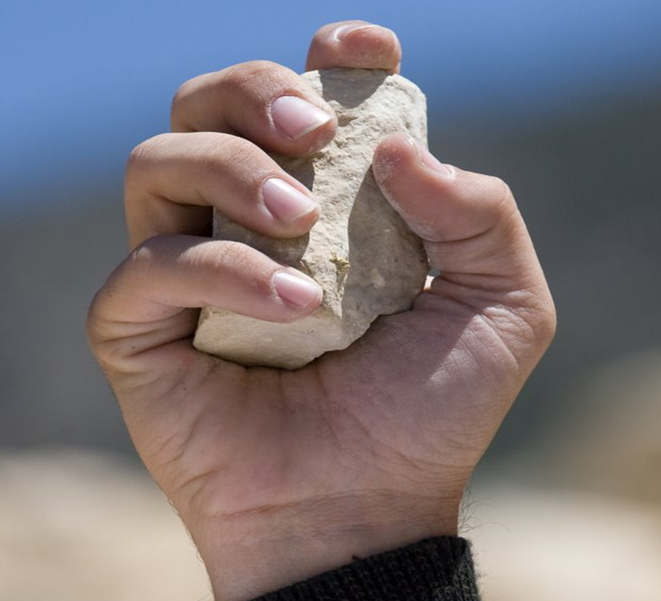The Silent Weight of Guilt: The Impact of Unconfessed Sin
Guilt is a corrosive. It can creep into our lives like a slow poison, silently eating away at our well-being. When left unchecked, guilt doesn’t just affect our mood. It can seep into every corner of our existence, influencing our mental, physical, and spiritual health. The weight of unacknowledged and unconfessed sin can often lead to anxiety and depression. And can even lead to physical symptoms such as weakened immunity or disturbed sleep. However, guilt is not always harmful. In fact, it can serve as a divine nudge, urging us to examine our actions and seek a path toward healing. As we explore, the first step toward that healing is the confession and acknowledgment of our sins. Confessing sin is a salve for the soul.
A Lesson from Scripture: The Power of Unacknowledged Sin
The Bible frequently touches on the issue of sin, offering profound insights into its effects on the human heart. Consider the following story from the Book of John.
“As he was speaking, the teachers of religious law and the Pharisees brought a woman who had been caught in the act of adultery. They put her in front of the crowd. “Teacher,” they said to Jesus, “this woman was caught in the act of adultery. The law of Moses says to stone her. What do you say?” They were trying to trap him into saying something they could use against him, but Jesus stooped down and wrote in the dust with his finger. They kept demanding an answer, so he stood up again and said, “All right, but let the one who has never sinned throw the first stone!” Then he stooped down again and wrote in the dust.
When the accusers heard this, they slipped away one by one, beginning with the oldest, until only Jesus was left in the middle of the crowd with the woman. Then Jesus stood up again and said to the woman, “Where are your accusers? Didn’t even one of them condemn you?” “No, Lord,” she said. And Jesus said, “Neither do I. Go and sin no more.” – Holy Bible, John 8:3-11

In this moment, the Pharisees and teachers of religious law were forced to confront their own sins. As Jesus revealed their hypocrisy, their hearts grew heavy with the burden of unconfessed wrongdoings. They walked away, one by one. The oldest lead the way—perhaps because their longer lives had accumulated more unacknowledged sin. As the weight of guilt pressed on them, their pride and shame prevented them from confronting their mistakes. When God (Jesus) weighs us in the balance of His holy righteousness, and we are found lacking, it can be an extraordinarily painful realization. Unacknowledged and unconfessed sin has a way of accumulating a heaviness in our hearts. Confessing sin can soothe our soul.
Guilt’s Toll: The Personal Cost of Ignoring Sin
In Psalm 32:3 David said, “When I refused to confess my sin, my body wasted away, and I groaned all day long“. The older men that were ready to stone the woman had more unacknowledged and unconfessed sin than the younger men. More sin they’d never repented of. Their old bodies groaned in agony as they wasted away. Hearing Jesus turn the tables on their accusation and call them out for their sin felt like being branded with a hot iron. The younger men also knew they were behaving like hypocrites. Perhaps their hearts were not as heavy as the older men. But when Jesus showed them they were lacking they too walked away.
This story highlights a crucial truth. When God shines a light on our sins, ignoring or hiding from that realization can only lead to more suffering. Instead, God calls us to repentance, urging us to acknowledge our wrongs, and seek His mercy. Confessing sin leads to healing.
Lessons from John 8: Understanding Grace and Responsibility
This passage of Scripture teaches us a number of important lessons, but two main important lessons are:
- Under the Covenant of Grace, Judgment Belongs to God. While we are called to recognize and address sin, it is not our role to judge or condemn others. Remember John the Baptist, whom Jesus said was the greatest man that ever lived, told Herod, “It is not lawful for you to have your brother’s wife.” When we see sin, it’s OK to call it out, but we do so as humbly as we are able. We must do so with humility and grace. Before addressing another’s sin, we should bathe the conversation in prayer, ensuring that our motives are pure and loving.
- Confession is Key to Healing – when God reveals our sins, we must not run or hide from Him. In Psalm 32:5, David shows us the proper response. He said “I acknowledged my sin to You, and I did not hide my guilt. I said, ‘I will confess my wrongdoings to the Lord,’ and You forgave the guilt of my sin.” Like David and the adulterous woman, we should approach God with humility and repentance. We should not let pride or shame stand in the way of forgiveness.
Confession: The Pathway to Forgiveness
At its core, confessing sin is an acknowledgment that we have sinned and fallen short. It is a crucial step in receiving God’s grace and restoring our relationship with Him. The Bible promises that if we confess our sins, God is faithful to forgive us and cleanse us from all unrighteousness (1 John 1:9). This divine promise is a reminder. No matter how heavy our guilt may feel, God’s mercy is always available to those who seek it.
Conclusion: The Healing Power of Confession
Confessing our sins is something God wants us to do. Confession is evidence that we acknowledge that we have sinned. Unconfessed sin burdens the heart, but through acknowledgment and repentance, healing can begin. By confessing our wrongs to God, we open ourselves to His grace and forgiveness. It allows us to move forward with a renewed spirit. Guilt, while uncomfortable, serves as a powerful motivator to realign our lives with God’s will. Let us embrace the opportunity to confess, not with fear or shame, but with faith in the redeeming power of His love.
If we confess our sins, he is faithful and just and will forgive us our sins and purify us from all unrighteousness. – Holy Bible, 1 John 1:9
Related content: Sins forgiven
AI did not write this article but assisted with proofreading.
